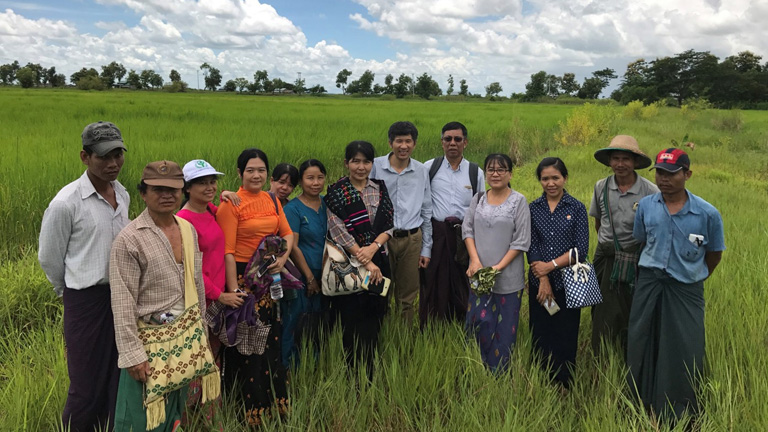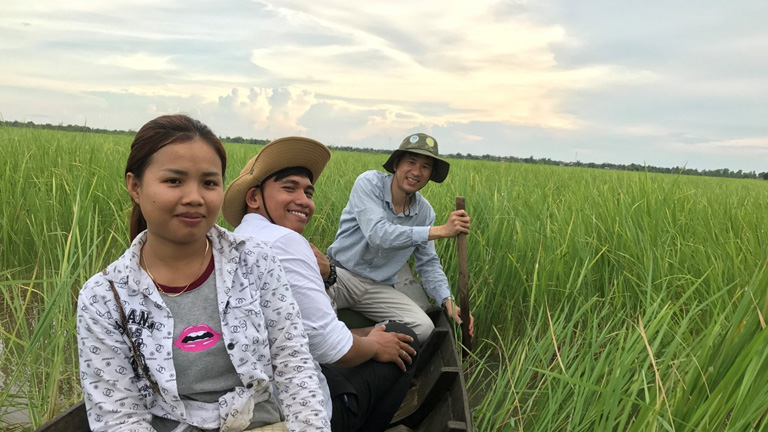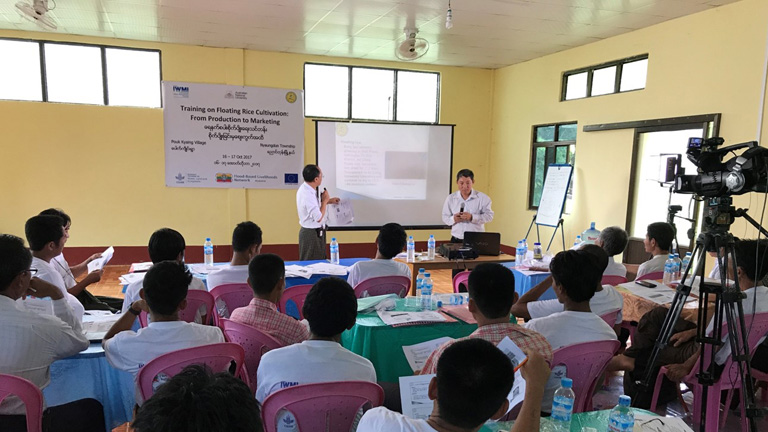A recently completed research project sponsored through the Mitsui & Co. Environment Fund into developing and promoting traditional floating rice farming across Cambodia, Myanmar and Vietnam has identified key ways farmers can greatly increase their yields.
The study found that deep-water floating rice, as it is a climate-change adapted farming system, produces nutritious foods more sustainably than intensive rice production systems. Importantly, the research highlights small changes, including improvements to grain quality, farming systems, farm, post-farm and whole chain operations, which implemented could mean significant returns to farmers.
“The key findings from this report are most significant in identifying key interventions in the floating rice value chain that will improve the livelihoods of the farmers,” Supervising Professor Dr Jamie Pittock said.
The project was led by researchers from the Australian National University (ANU) with collaboration from the Research Association for Development, Cooperative University (Myanmar), Royal University of Agriculture (Cambodia) and An Giang University (Vietnam).
The research group is now looking to publish their findings in peer-reviewed academic literature, while policy briefs have been provided to the relevant government agencies in Myanmar, Cambodia and Vietnam to progress the opportunities the research has identified.
“ANU will look to continue our collaborations with our in country partners to advance these reforms,” Dr Pittock said.
Mitsui & Co. Environment Fund
The Mitsui & Co. Environment Fund supports activities and research across the world that contributes to solving global environmental problems. The fund supports programs that contribute to a sustainable society where the economy and environment coexist in harmony.
Since its launch in 2005, the Mitsui & Co. Environment Fund has provided more than 550 grants to recipients across the world. Chosen by Mitsui's head office in Tokyo, grants are for practical activities or research that contributes to the sustainable development of society and addresses global environmental problems. Recipients of grants must focus on one of the following fields: global environment, resource circulation, ecosystems and the symbiotic society, or the relationship between people and society.


